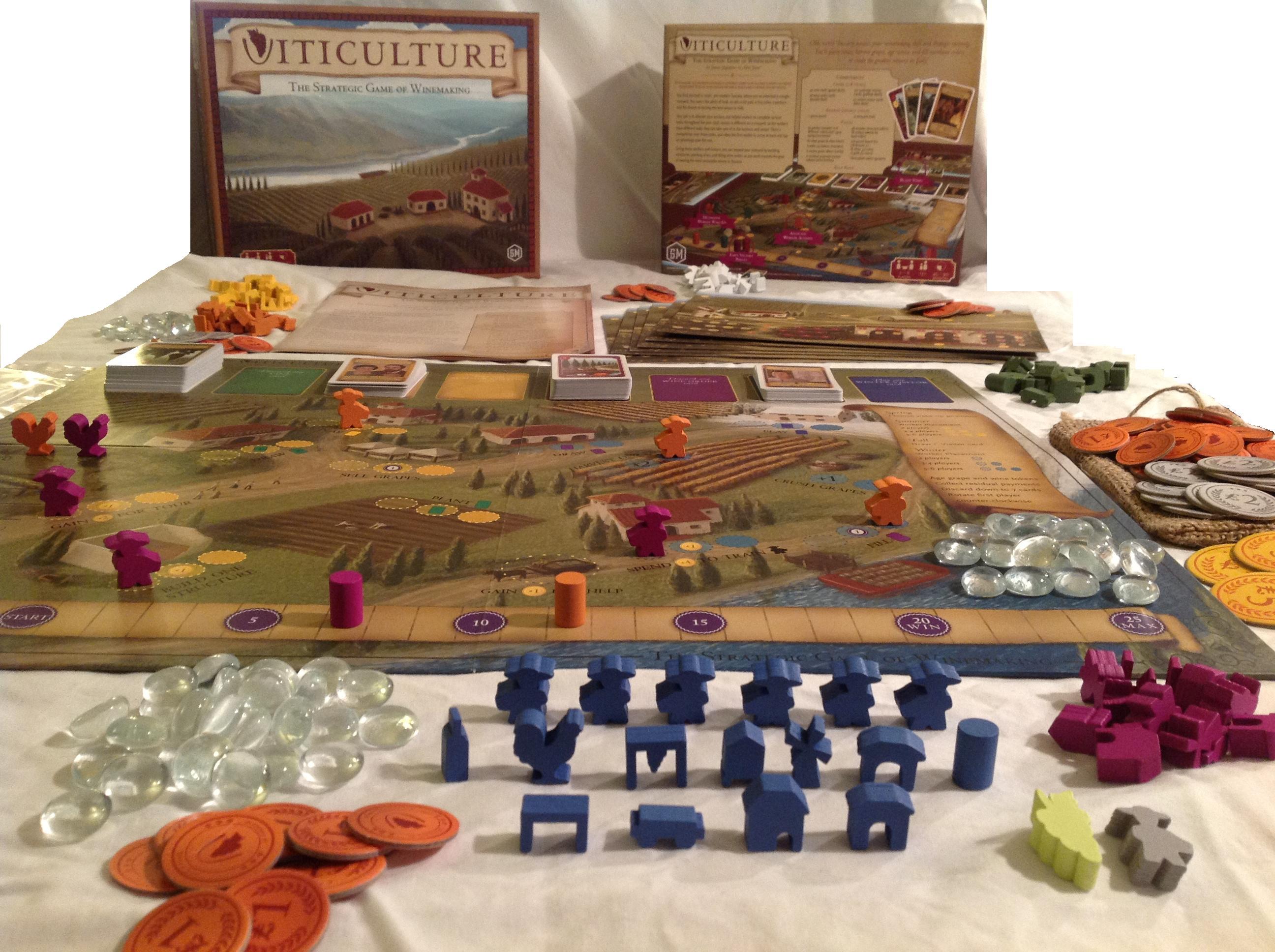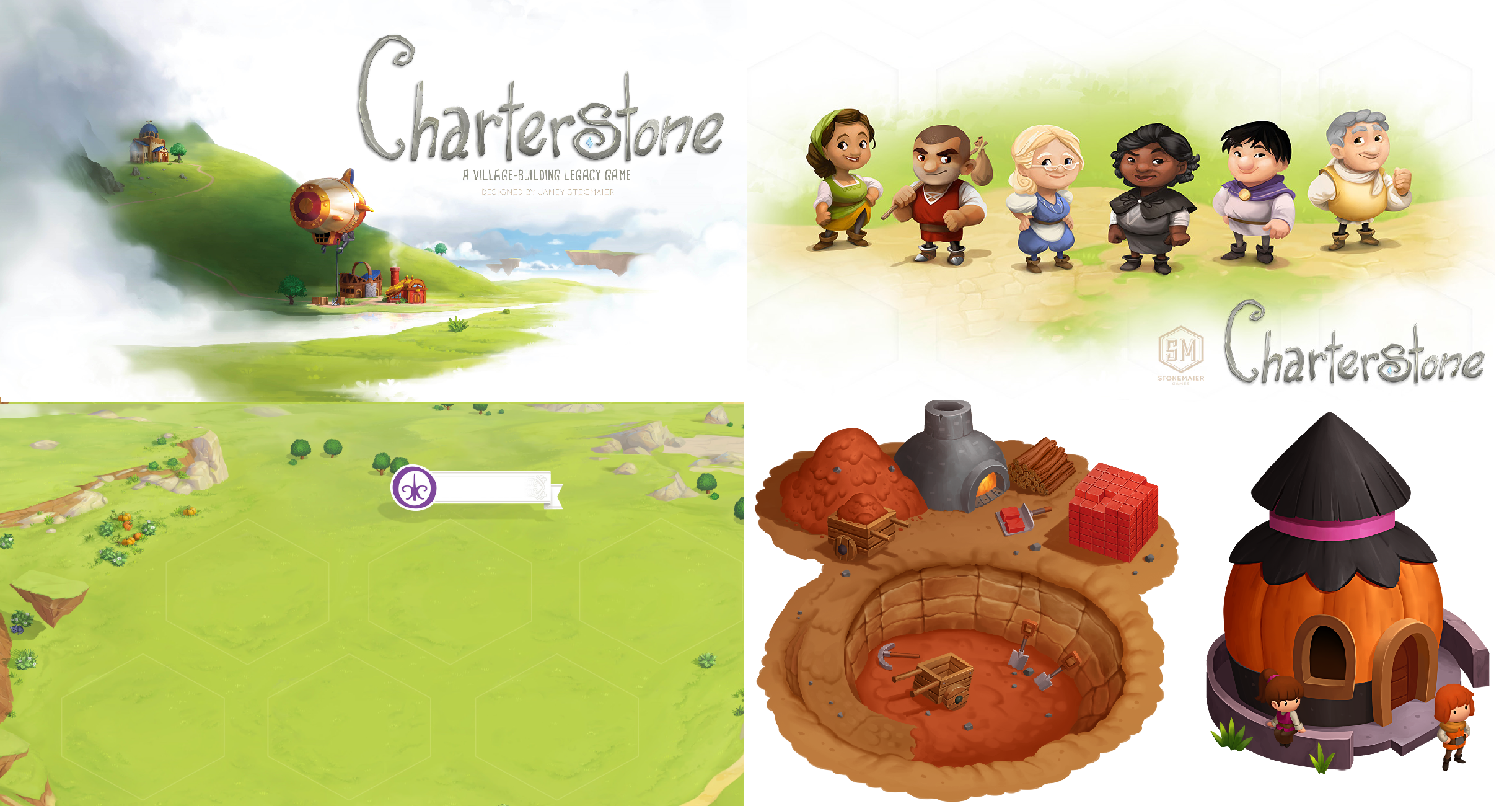Digital adaptations of Viticulture and Charterstone board games in the works
Beta versions could emerge as soon as next spring.

In a lengthy post earlier this month about Scythe: Digital Edition and the realities of digital game development, designer-owner Jamey Stegmaier of Stonemaier Games casually announced that the company was actively working towards digital adaptations of popular games Viticulture and Charterstone. Digital adaptations of both games are in the works, though very early in development for Charterstone, while Viticulture is still without a developer though Stegmaier has been pursuing and choosing one for about two years. “I’m excited about Scythe Digital,” posted Stegmaier, “just as I’m eager to move forward with Viticulture Digital. Charterstone Digital is also in the works.” Viticulture, a 2013 board game that has become a consistent seller, is the worker-placement board game about making wine that put Stonemaier games on the map. Charterstone, from 2017, is a legacy worker-placement game about building a village on a fantasy frontier. Jamey Stegmaier, Stonemaier Games’ only full time employee, was the designer on all three games.
Contacted for more details, Stegmaier was forthcoming with information about the adaptations: “Charterstone is in early digital development right now, and the developer tells me they’re aiming to fully gear up the process later this year and have a beta ready next spring. For Viticulture, we’re in the process of selecting a developer now, and my hope is that it ends up on a similar trajectory to Charterstone.” (Stegmaier’s initial blog post included a virtual who’s-who of digital tabletop developers he’d approached about the Viticulture adaptation.) When Stegmaier was asked about his hopes for the games’ presentation he brought up an interesting inspiration, saying “Whenever I think about how I want a worker-placement game to be implemented in digital form, I think of Playdek’s Lords of Waterdeep. That’s my gold standard, so I’m hoping for something similar for Viticulture and Charterstone.” (For this author, it’s worth noting that I’m inclined to agree.)

“My primary motivation for [a digital adaptation of] Viticulture is to provide a universal teaching tool for new viticulturalists,” said Stegmaier, later adding “and as fan service to people who already know Viticulture and simply want another way to play it.” Viticulture is an obvious choice for a digital adaptation, ranking in the top 25 on fan bellwether BoardGameGeek’s rankings and making consistent enough sales since its release—Stegmaier said roughly 70,000 units—to warrant an updated "Essential" edition in 2015. He also cited the well-published knowledge that digital board games help sell physical copies.
Charterstone, despite its roughly equal or greater popularity and sales, would be an unorthodox game to adapt to digital. First, it’s a more recent game with a less proven record of popularity, but mostly it’s a legacy game. Legacy games are often regarded as a unique, highly physical, one-time experience because you literally change the game as you play: Write on the board, add stickers to it, and rip up cards. You can often play them once their limited runs have been completed, but it's more of a nostalgic victory lap than a strong game experience. Stegmaier noted that he was initially “hesitant” to do a digital adaptation of Charterstone. “It’s a game at least partially about permanence,” he said. “It’s tough to simulate that in digital form, especially since the whole point of a digital game is that you can play it over and over… So I see the digital version of Charterstone as an alternative experience to the tabletop game. I have no idea if it will drive cardboard sales like I think Viticulture will.”
Successful or not, these are both good games that I’m glad to see come to digital. For those interested in the insider details of making a digital board game adaptation—at least from the cardboard designer's perspective—I highly recommend Jamey's blog post.
Keep up to date with the most important stories and the best deals, as picked by the PC Gamer team.
Jon Bolding is a games writer and critic with an extensive background in strategy games. When he's not on his PC, he can be found playing every tabletop game under the sun.

